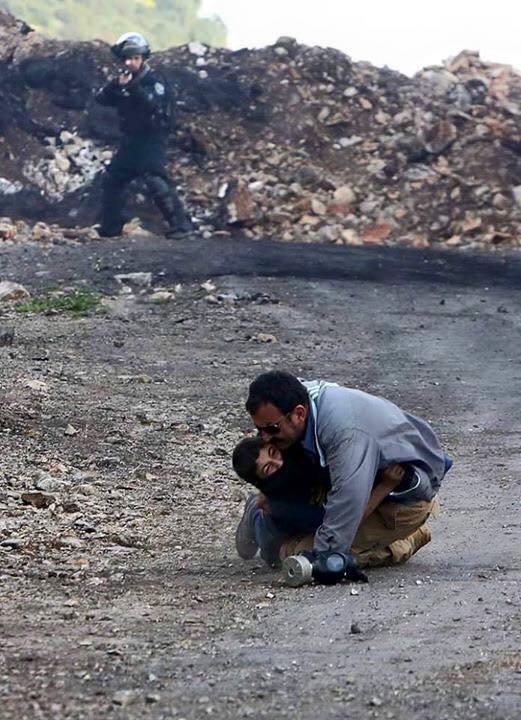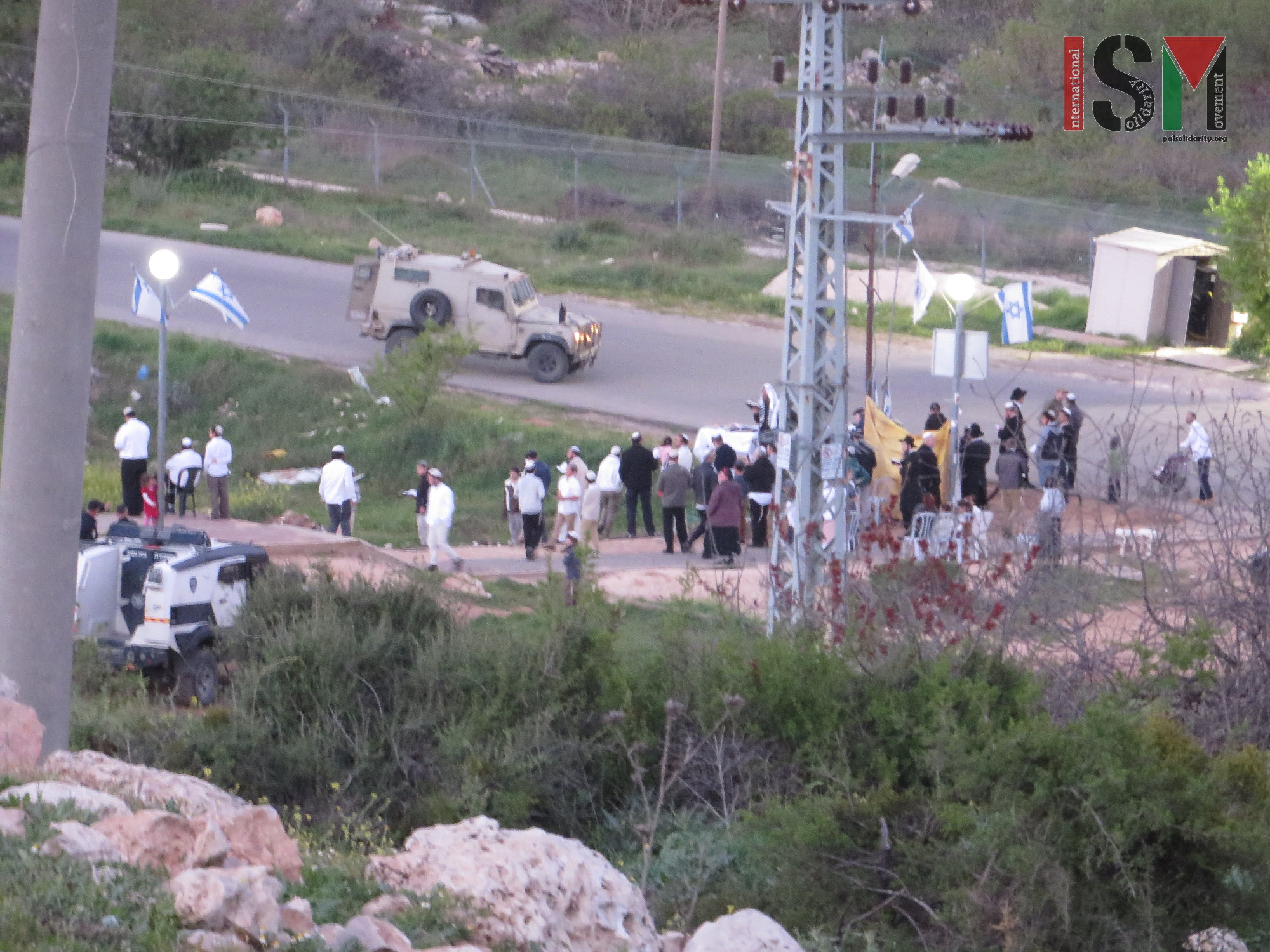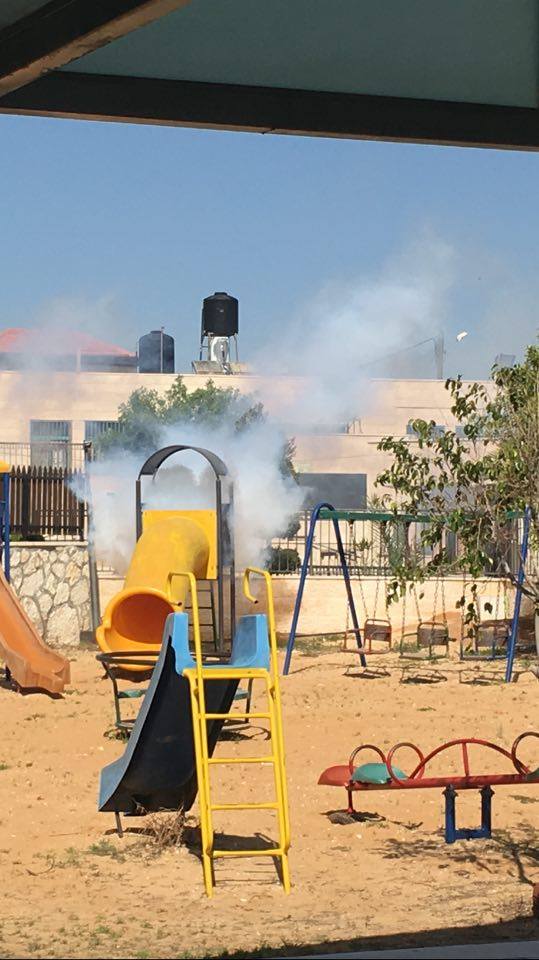Category: Reports
-
11 year old shot in Kafr Qaddum demonstration
15th March 2016 | International Solidarity Movement, al-Khalil team | Kafr Qaddum, occupied Palestine On Friday the 4th or March, Palestinians and international activists alike joined together to march against Israel’s illegal occupation in Kafr Quaddum. During this march, the boy identified as Khaled, 11 years of age was shot with live ammunition and suffered…
-
Continuous struggle for justice in occupied Hebron
15th March 2016 | International Solidarity Movement, al-Khalil team | Hebron, occupied Palestine On 9th March 2016, Israeli forces yet again demolished the illegally erected synagogue-tent on private Palestinian land close to the illegal Israeli settlement of Kiryat Arba in occupied al-Khalil (Hebron). The synagogue-tent was build up by settlers some years ago opposite the…
-
Targeting playgrounds in Ni’lin
14th March 2016 | International Solidarity Movement, al-Khalil team | Hebron, occupied Palestine On Friday, 11th March 2016, Israeli forces again attacked the non-violent protest in Ni’lin in the occupied West Bank, showering the village, including a public park and playground, in tear gas. For years the villagers of Ni’lin have been protesting the illegal…



